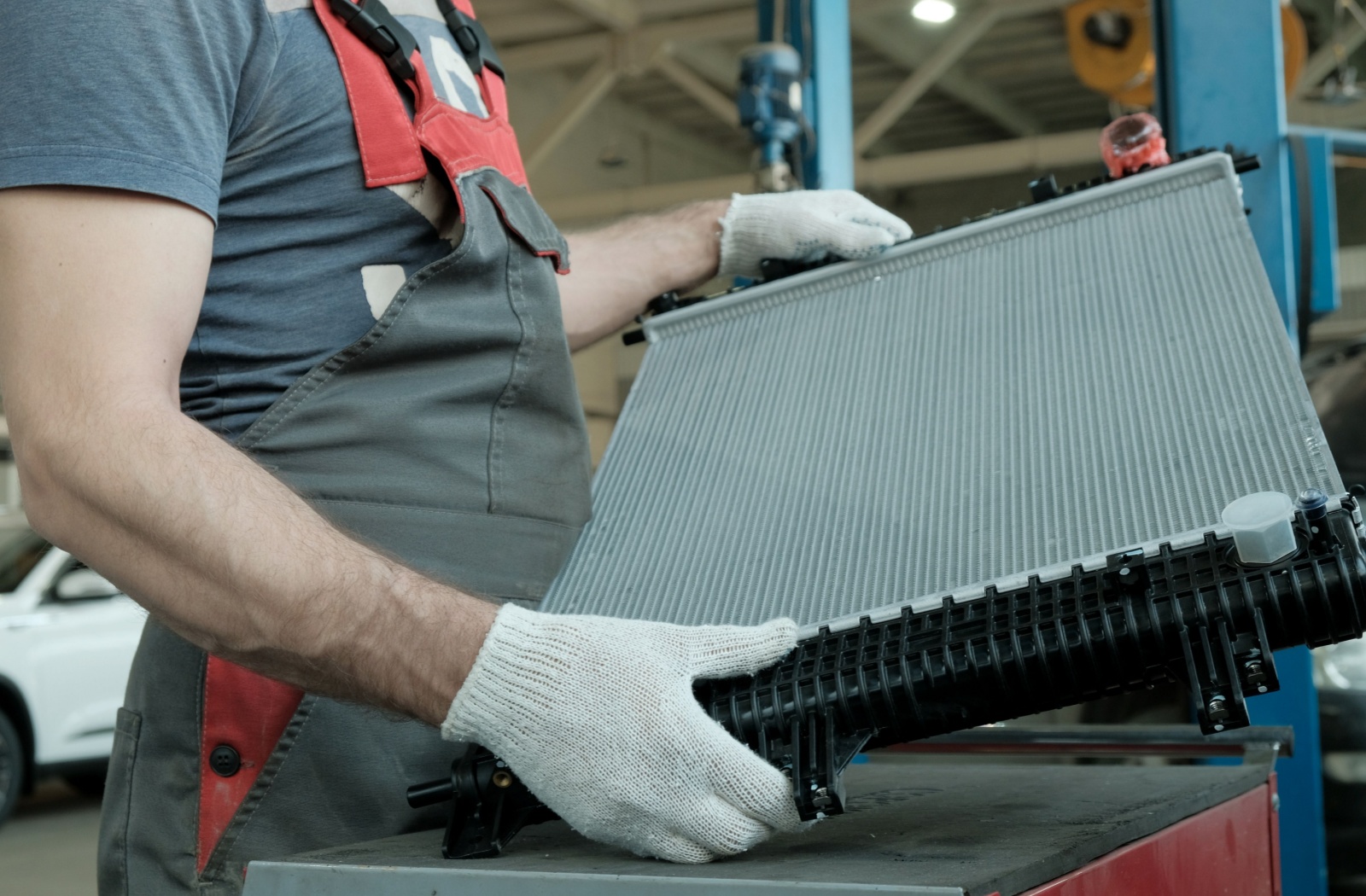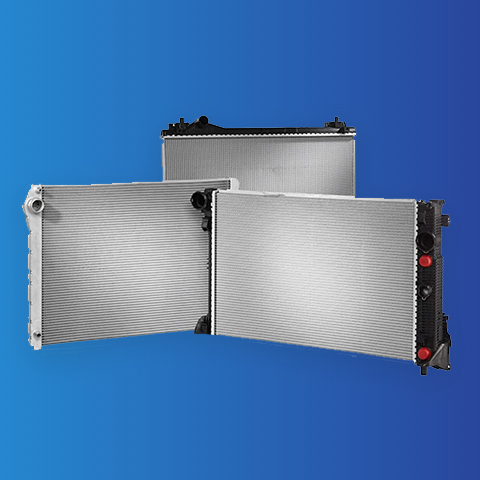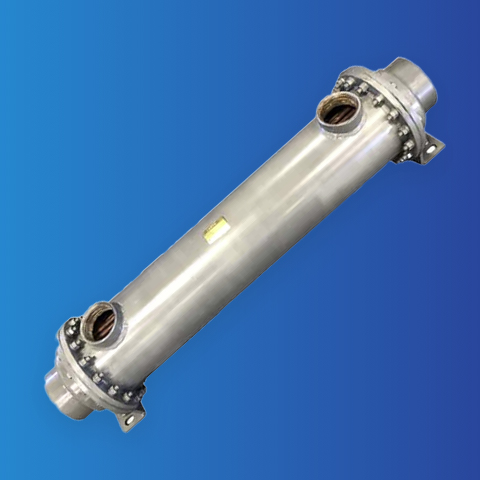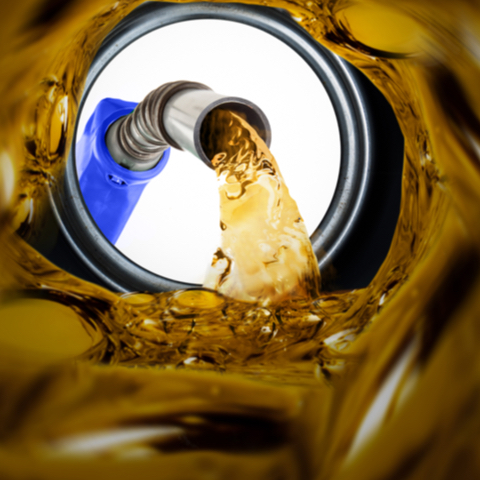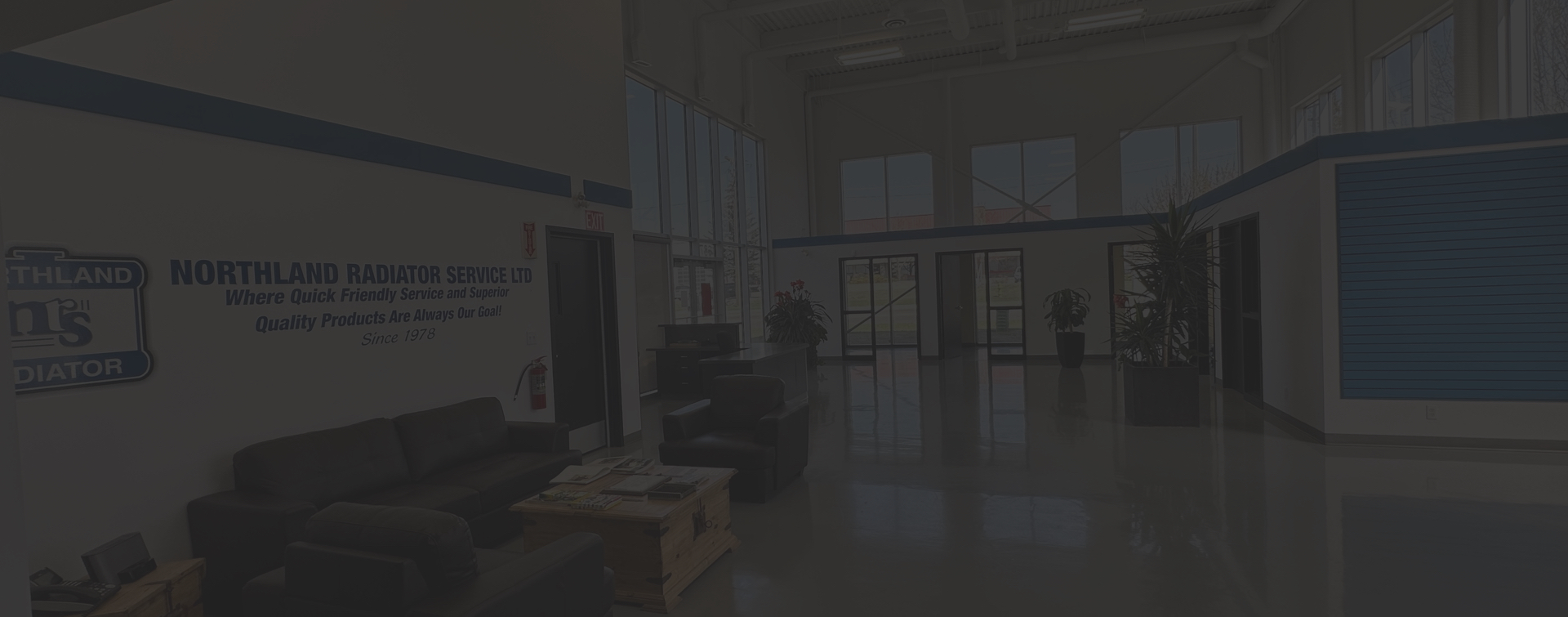Choosing the proper radiator for your vehicle is an important decision with lasting performance, durability, and cost implications. Among the most popular options are aluminum and copper/brass radiators. There is no single “best” option for which radiator is better because each has unique benefits and trade-offs.
Aluminum radiators are lightweight, corrosion-resistant, and excel at rapid heat dissipation, making them ideal for high-performance vehicles. Copper/brass radiators, while heavier, offer greater durability and repairability. They also retain heat well, which can be advantageous for classic or heavy-duty vehicles.
Your radiator plays a critical role in regulating engine temperature and ensuring optimal vehicle operation. So, it is essential that you equip your vehicle with the proper radiator systems for your driving style and needs.
Radiator Material Properties
Like any component in a vehicle, radiators rely on their underlying materials for performance and reliability.
Aluminum Radiators
Aluminum radiators are renowned for their lightweight design, which makes them easier to handle during installation and offers performance benefits. Aluminum is also corrosion-resistant and provides excellent thermal conductivity, effectively dissipating heat.
Copper/Brass Radiators
Copper/brass radiators are much heavier but offer superior durability. They are known for their robustness and long-standing reputation in classic and heavier vehicles. Copper has the highest thermal conductivity of all engineered metals, while brass, often used in conjunction with structural purposes, provides sturdiness. Together, these materials enhance heat retention and repairability.
Essential Considerations when Choosing a Radiator
There are multiple things to consider when deciding on the correct radiator for your vehicle. You should always consult a licensed professional who can offer expert advice.
Heat Transfer Efficiency
The ability of a radiator to transfer heat efficiently is fundamental to its performance.
Aluminum radiators are excellent at dissipating heat quickly. This is due to their high thermal conductivity and design, which often feature wider fin spacing to optimize airflow. This rapid dissipation makes aluminum radiators popular for performance vehicles that demand quick cooling during high-intensity operations.
Copper’s superior heat retention allows copper/brass radiators to perform exceptionally well in maintaining consistent engine temperatures. But due to their weight and tighter fin spacing, their heat dissipation may not match aluminum radiators, particularly during extreme conditions.
Weight Considerations
Weight is a critical factor for vehicle design, influencing fuel efficiency, handling, and acceleration.
Aluminum radiators are significantly lighter than their copper/brass counterparts. Their reduced weight can improve fuel economy and vehicle performance, which is especially advantageous for high-performance and racing cars.
On the other hand, heavier copper/brass radiators may add to vehicle weight and impact efficiency and handling. This weight difference can be crucial depending on the vehicle’s intended use. For example, some applications may benefit from a heavier-duty radiator versus a lighter, more efficient one.
Radiator Durability & Longevity
Durability often determines how long your radiator will last and how well it withstands daily wear and tear.
Aluminum radiators are robust and resistant to corrosion, but they can be more susceptible to damage from road debris or environmental stressors. While their durability is suitable for most modern vehicles, they do not generally outlast copper/brass radiators in the long term.
Copper/brass radiators are exceptionally durable. They can withstand mechanical stress and harsh conditions, making them a frequent choice for classic, off-road, and heavy-duty vehicles. Their components are often more forgiving when it comes to repairs, which contributes to their longer lifespan under certain conditions.
Corrosion Resistance
Corrosion can compromise a radiator’s efficiency and structural integrity, making resistance a key factor in material selection.
Aluminum radiators have a clear advantage in corrosion resistance. Aluminum naturally forms an oxide layer that protects it from rusting, which can be especially beneficial in environments prone to moisture. Copper/brass radiators are robust but typically require additional coatings or treatments to prevent rust or galvanic corrosion.
Cost Differences
Cost is often a deciding factor for many vehicle owners. Aluminum radiators are typically more affordable than copper/brass options. The aluminum manufacturing process is more straightforward and less expensive. This cheaper manufacturing cost contributes to its lower upfront cost. While copper/brass may be a pricier option, it often offers better long-term value due to its durability and repairability.
Repairability
Copper/brass radiators stand out for their robust repairability. Their components can often be easily soldered or reassembled, making repair costs lower and easier to manage. It is possible to repair aluminum radiators, but repairs are often more challenging. Damage to an aluminum radiator may require complete replacement, which can be both inconvenient and costly.
Radiator Applications
The choice between aluminum and copper/brass radiators often depends on the type of vehicle and its usage.
Modern vehicles, high-performance cars, and racing applications commonly use aluminum radiators. Their lightweight construction and rapid heat dissipation make them perfect for cars where performance and handling are priorities.
Copper/brass radiators are commonly found in classic and vintage cars and heavy-duty vehicles. Their durability, ease of repair, and superior heat retention are particularly suited to applications where reliability and longevity are key concerns.
Weight Distribution Impact
Beyond weight alone, its distribution within the vehicle also matters. Lighter aluminum radiators reduce the strain on the vehicle’s front end. This lighter load improves weight distribution, potentially enhancing handling and balance during driving.
Heavier copper/brass radiators may cause uneven weight distribution, which could affect the vehicle’s responsiveness in certain cases. But in a heavy-duty truck application, that extra weight in the front may not be a problem.
That is why consulting a professional is essential. We can provide expert advice on radiator selection for your unique needs.
Get the Right Radiator for Your Needs
Both aluminum and copper/brass radiators have strengths and weaknesses and are suited to different needs. By understanding their properties, heat transfer capabilities, durability, and costs, you can make an informed decision tailored to your vehicle and driving conditions.
The correct radiator can ensure your engine stays cool and your vehicle runs efficiently, so do not delay getting your vehicle rigged up right. Contact our heat transfer specialists at Northland Radiator today. We are happy to provide you with a quote and expert advice on selecting the right radiator for your vehicle.

